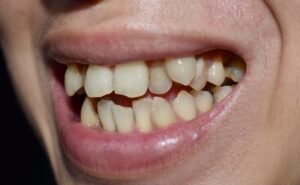Alcohol Addiction Treatment Programs Available at Our Drug and Alcohol Rehab in Fort Worth, TX.

You or your loved one could probably be struggling with alcoholism. They are probably considering seeking help at an alcohol addiction treatment center. They are probably fumbled by the variety of treatment options available. This piece entails an analysis of the typical alcohol addiction treatment programs. But first, let us understand what addiction is and what signs of addiction to look out for in you or a loved one.
What is Alcohol Addiction?
Alcohol addiction, often known as alcoholism, is a chronic illness in which a person is unable to manage their alcohol usage despite the severe effects on their health, relationships, and obligations. It is characterized by a compulsive drive to drink, which may result in physical dependency, withdrawal symptoms, and an inability to quit drinking despite a wish to do so. Alcohol addiction can have a dramatic influence on many elements of a person’s life, with serious personal and societal consequences.
Signs of Alcohol Addiction
- Unable to control drinking amounts.
- Lying about or hiding drinking habits.
- Alcohol interferes with daily responsibilities.
- Obsessive thoughts about alcohol.
- Needing more alcohol to achieve desired effects.
- Experiencing withdrawal symptoms after quitting or cutting down on alcohol.
- Neglecting previously enjoyed activities for drinking.
- Continuing to drink despite negative consequences.
- Multiple failed attempts to cut down or quit.
- Partaking in risky behaviors like unprotected sex or DUI (Driving Under the Influence).
What To Expect During Alcohol Addiction Treatment Process
Alcoholism treatment often starts with an inpatient medical detox that helps stabilize the patient and guide them safely and pleasantly through the alcohol withdrawal process. Once the patient is stable and comfortable, they can then begin inpatient alcohol addiction treatment, often known as residential treatment. Following inpatient therapy, individuals can advance to PHP, IOP, and, lastly, outpatient care. Some individuals may transition from detox to outpatient treatment. It depends on several factors like individual response to treatment, financial considerations, personal preferences, etc.
Alcohol Addiction Treatment Programs
Below is a comprehensive analysis of the abovementioned alcohol addiction treatment programs:
- Medical Alcohol Detox– This is often the first step in addiction treatment. Alcohol detox entails allowing the body to rid itself of alcohol and toxins. Medical alcohol detox is vital as most individuals who are dependent on alcohol experience withdrawal symptoms in response to quitting alcohol. Some of these withdrawal symptoms could be fatal for instance seizures and delirium tremens. A medical specialist may offer some medications like acamprosate and naltrexone at this level to alleviate these withdrawal symptoms.
- Inpatient Alcohol Addiction Treatment (residential treatment). In residential treatment, patients participate in individual, group, and specialized therapy, as well as 12-step fellowship groups. This treatment is characterized by the fact that the patients remain at the facility throughout treatment. It is most preferable for ones with severe addiction. Residential treatment is not available at every alcohol rehab center, so if it is something you are interested in, you should inquire about it explicitly.
- PHP– A partial hospitalization program (PHP) offers comparably intense treatment with inpatient treatment but with a slightly more flexible setting than residential inpatient therapy. Here, patients do not sleep at the facility but they attend therapy throughout the day and return home in the evening for 5 days a week. This program is appropriate for individuals with strong support networks at home and with stable living conditions.
- Outpatient Alcohol Addiction Treatment – Outpatient treatment is a more adaptable kind of alcohol and drug addiction treatment. Although almost all therapies and services provided via inpatient rehab are also accessible at outpatient rehab, this kind of rehab allows patients to attend therapy for a few hours during the week and return home in the evenings. This level of treatment is appropriate for patients who have mild alcohol addictions, have successfully finished an inpatient alcohol program, are medically stable, and with a strong desire to achieve sobriety, and ones who have a solid support system at home.
- Behavioral Therapies– Behavioral therapies are valuable components of alcohol addiction treatment programs. They seek to modify dangerous drinking habits and develop healthy coping mechanisms. Common behavioral therapies include Dialectical Behavioral Therapy (DBT) Cognitive Behavioral Therapy (CBT), Motivational Interviewing, Contingency Management, etc. These therapies assist clients in identifying triggers, changing thought patterns, enhancing motivation, and reinforcing positive behaviors, equipping patients with tools and techniques for long-term rehabilitation.
- Aftercare Planning- Toward the end of your stay in a rehabilitation facility, you and your counselor will develop aftercare depending on your progress to that point. Aftercare planning can considerably lower alcohol relapse rates. Your strategy is likely to include social and medical support measures. It may involve transitional housing (such as a sober living home), counseling and follow-up therapy, frequent medical evaluations, alumni support groups, 12-step support groups, and other lifestyle modifications to assist you in proactively coping with real-life stressors that might lead to relapse.
Skyward Treatment Center Offers the Best Alcohol Addiction Treatment in Fort Worth, TX.
Skyward Treatment Center can help you overcome that addiction. Contact us today and let us lead you into living a fulfilling and sober life.





